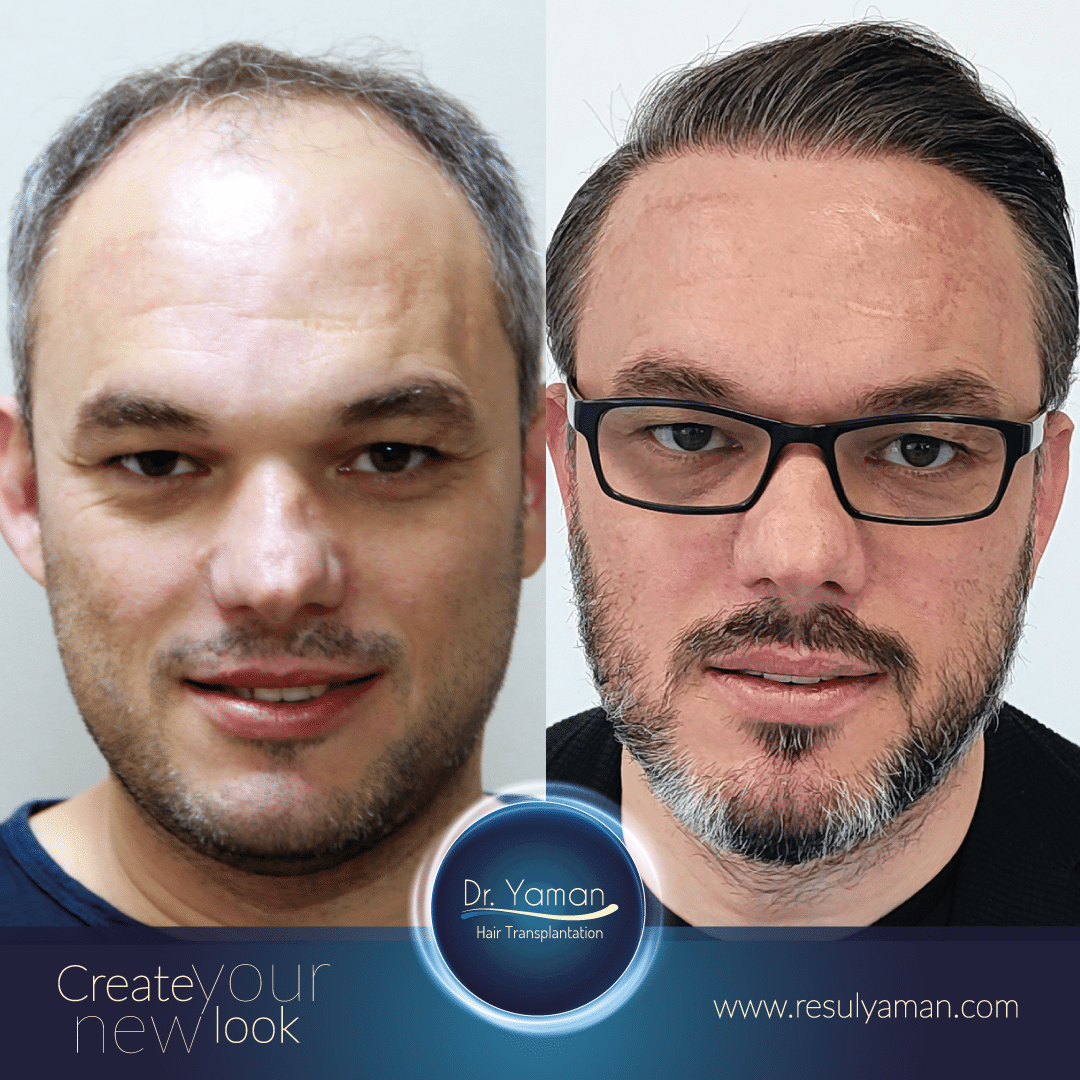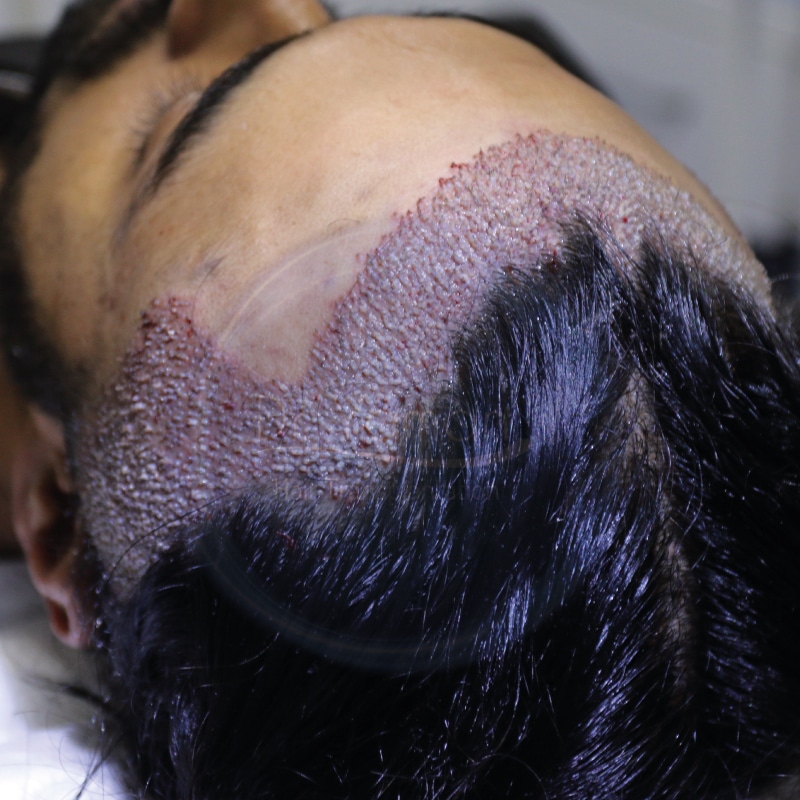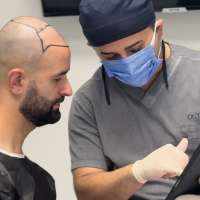Hair loss doesn’t happen uniformly and although it is more common during your 30s, men can get affected by it in later life towards their 60s and onwards.
This means that many men are looking for hair loss solutions as they get older, but I find that most people do not understand the realities of hair transplants and if there is a cut-off point concerning your age.
I want to clear up this confusion and discuss the viability of a hair transplant at age 60 including what to expect, learning how your hair changes as you age, and the factors that could affect your suitability for a hair transplant over the age of 60.
Understanding How Hair Changes With Age
The first thing I want you to understand is that your hair changes as you get older. Therefore, a hair transplant at age 60 at our hair transplant clinic will look very different from a hair transplant in your 30s. There are three main ways your hair changes as you get older:
- Hair thinning
- Color change
- Hair loss
Firstly, the hair growth cycle changes and as you get older, your hair doesn’t grow as thick or as long as it once did. Therefore, your hair gets thinner and it can look like you have less hair.
Next, we all know that as we get older, our hair color changes and will eventually turn to grey and possibly white. The rate at which this happens can vary from person to person but typically by your 60s, you will have some grey hair.
Lastly, the rate at which you lose hair can be accelerated as you get older. Usually, we lose between 50-100 hairs naturally per day. This rate can be increased which further contributes to hair thinning.
Factors Affecting the Viability of Hair Transplants at 60
Now that you understand how your hair changes, we have to put that into context concerning hair transplant viability at the age of 60 or older. There are several factors to consider that affect your suitability including your health, hair quality, and hair loss severity.
Physical fitness and health

We can’t escape the fact that as we get older our bodies don’t recover as quickly, and even simple procedures like a FUE hair transplant can take longer to recover from. Hair transplants only use local anesthetic and the recovery time is relatively quick compared to other medical procedures, but it still puts extra pressure on your body and you have to feel fit enough to cope with that.
The extent of your hair loss
A hair transplant involves taking grafts of your hair from a donor area (usually at the back of your scalp) and transplanting them into the areas of hair loss.
This means that you have to have enough hair in suitable donor areas to make a hair transplant viable. For example, if you are in the later stages of hair loss and are balding on the top of your head, there may not be enough donor hair to give you the desired result and cover your hair loss.
The quality of your hair
Now that you understand how hair changes as you age, you should be able to see the potential problems this causes for hair transplants.
The main point is to remember that your hair transplant will only look as good as the quality of your existing hair. If you have thin, greying donor hair, you will have thin greying transplanted hair. You have to be OK with the fact that you will not be able to improve the quality, thickness, and color of your hair with a hair transplant.
Benefits of Getting a Hair Transplant at Age 60
As you can see, it is possible to get a hair transplant at age 60 or over and it can be beneficial including:
- Improved confidence.
- Reversing hair loss conditions.
You will feel fantastic after the procedure when your transplanted hair grows in and you have your old hairline back. Hair transplants are also the most effective method of tackling hair loss and for all intents and purposes, they are a permanent solution.
Never Say Never, But Understand the Reality and Viability Factors
I hope you feel armed with knowledge now about getting a hair transplant at age 60. I want to reiterate that it is perfectly plausible! We have many patients who come to our hair transplant clinic in later life and have fantastic results.
The key is to assess your suitability. If your hair quality is still OK, and you understand the procedure, the recovery process, and the fact that your transplant will only look as good as the quality of your hair, then go for it!
 WhatsApp
WhatsApp Get Mail!
Get Mail!
 English
English Italiano
Italiano Español
Español Türkçe
Türkçe Português
Português Français
Français Deutsch
Deutsch عربي
عربي



